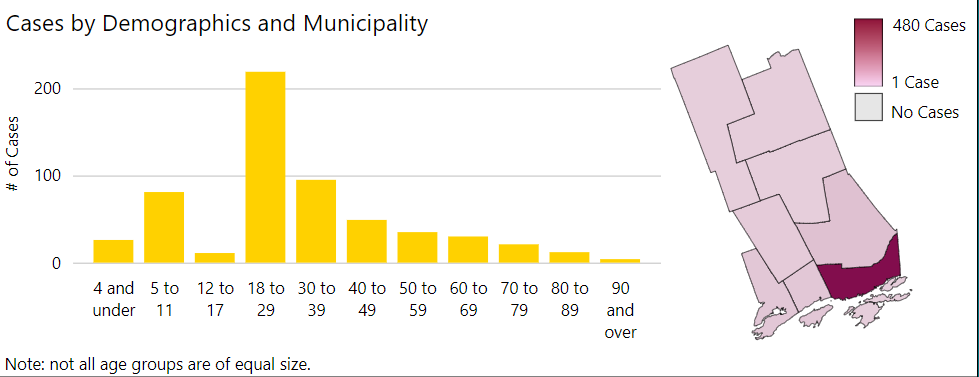With the announcement of the Omicron variant in the Kingston region, Queen’s University says it’s suspected that the variant has found its way into the school community.

“The emergence of the Omicron COVID-19 variant in the Kingston region, including a number of suspected cases within the Queen’s community, requires the university to adjust our campus operations,” a statement from Queen’s said Thursday.
Despite this announcement, Queen’s promised Thursday to go ahead with in-person exams.
With this news, and the skyrocketing cases of COVID-19 in the Kingston community, many Queen’s students have been protesting the idea of in-person examinations.
A petition signed by nearly 4,000 people is calling for Queen’s University to move exams online, while an open letter to Queen’s has issued a scathing critique of the decision to keep the exams in-person.
“Seemingly deaf to the calls from public health officials for increased caution as case counts explode across the province, Queen’s University (Queen’s) has made the outrageous decision to proceed with in-person exams this holiday season, forcing students to sit in crowded gymnasiums,” said Abigail McLean, who wrote the letter.
McLean told Global News in an interview that following her letter, she’s received more than 100 messages from students saying they, too are very worried about gathering during exams with the possibility of the new variant circulating in the community.
“I would implore the university to consider the long-term costs of not moving exams online,” she said.
“Do students want to go to a school that they know isn’t going to protect their safety?“
In a statement, Queen’s said students who are ill or who have symptoms of COVID-19 are not permitted on campus, and that a positive PCR test is not required to receive academic consideration.
“If a student has to miss a class, exam, or other academic requirement due to symptoms, COVID-19 illness, or a self-isolation requirement, timely academic consideration will be granted,” the university said.
Both the petition and the letter reference a recent outbreak linked to Queen’s University’s varsity sports, which was confirmed Wednesday. The outbreak was not related to an on-campus event or a sports event, the school said, and all varsity sports team members are vaccinated.
Amelia Lawton, who plays rugby for Queen’s, said that she and others on her team have been told to self-isolate after several people tested positive on her team and the men’s rugby team.

Get daily National news
Lawton said she tested negative for COVID-19 but has still had to isolate until Dec. 13. Her exams are being pushed to the second week of January. Being in fourth year, she said having her exams deferred into the second semester could hurt her chances for graduate school applications.
“Not having those grades and not having at least one semester under my belt is definitely adding a level of stress I didn’t expect,” she said.
Lawton said she’s unsure just how many of her teammates were affected by the outbreak, but that it was linked to celebrations around the men’s rugby championships two weeks ago.
Neither the health unit nor Queen’s has identified how many cases are associated with this outbreak, nor have they commented on whether the Omicron case or the region’s suspected new variant cases are linked to this outbreak.

Friday, the health unit reported five different outbreaks at various Queen’s University residences: with active cases at Brant House, Chown Hall, Harkness Hall and Victoria Hall, with seven cases in total associated. Another outbreak at McNeil House Residence began Nov. 26 but is now resolved, with only 4 cases associated.
When asked about the potential spread of Omicron within the Queen’s community, the health unit said “cases are still under investigation,” and that a press release on the changes in contact tracing due to the presence of Omicron in the community will be coming later Friday.
Queen’s University has yet to provide a response on the matter.
The health unit would also not give any details about a recent COVID-19-related death, that of a man in his 30s this week. Provincial data shows that there is no known epidemiological link to how he caught the virus.
As of Friday, the health unit has sent 105 suspected cases for full genome sequencing to test for the Omicron variant.
“These are all suspected potential Omicron cases that we would see additionally in this region,” Dr. Piotr Oglaza, medical officer of health for the region, said.

The health unit said as of Friday at noon, it had not received any more confirmed cases of Omicron, and that genome sequencing for those cases could take weeks. It also noted that it would keep the community apprised of any new Omicron cases.
Whether Omicron is linked to the school or not, it’s clear that cases within the Queen’s community and the 18-to-29 population are rising.
As of Friday, 35 cases have officially been linked to the university this week. Thursday, the health unit announced 104 new cases in one day, 63 of them found in the 18-to-29 age group.
Since Nov. 28, the date Oglaza gave earlier this week for the onset of the only confirmed Omicron case in the Kingston region, 219 cases have been linked to the 18-to-29 age bracket.
This number far outstrips the two other most affected age groups, with 95 cases found among those in their 30s and 81 in the five-to-11 group.










Comments